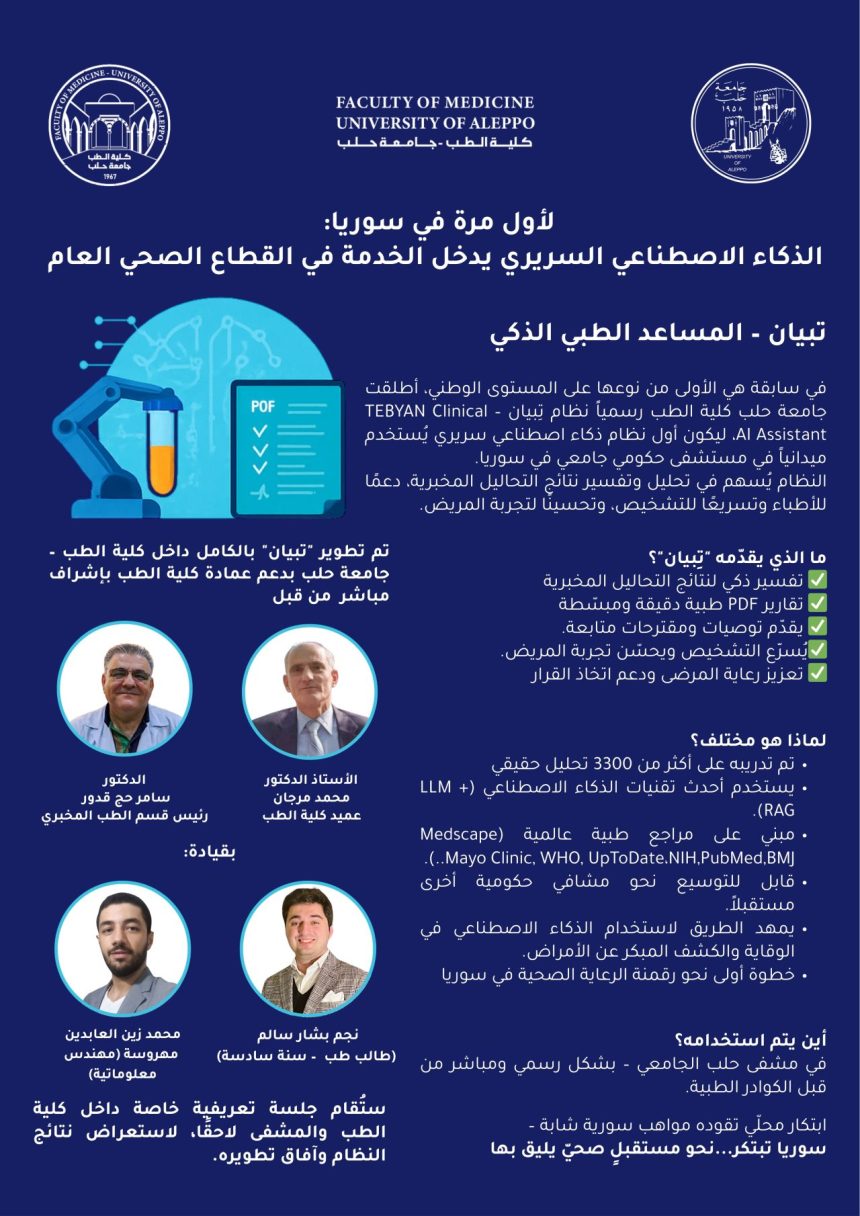In a landmark achievement for Syria’s healthcare sector, the Faculty of Medicine at the University of Aleppo has announced the launch of “Tebyan – TEBYAN Clinical AI Assistant.” This is the first artificial intelligence system to be clinically deployed in a public university hospital in the country and is now being actively used by medical staff to analyze laboratory test results.
An AI-Powered Assistant for Medical Diagnosis
Tebyan is a clinical AI assistant that leverages modern AI technologies (LLM + RAG) to analyze and interpret lab test results. It provides medical professionals with a structured, professional PDF report that includes:
- A precise explanation of any abnormal results.
- A simplified clinical summary.
- Initial, evidence-based recommendations.
- Suggested follow-up steps for the patient or medical team.
The system is designed to support doctors, accelerate the diagnostic process, and ultimately improve the patient experience.
A Homegrown Syrian Innovation
The Tebyan system was developed entirely in-house at the University of Aleppo’s Faculty of Medicine, led by sixth-year medical student Najm Salem and informatics graduate Zain Al-Abidin Mahrousa. The project was supervised by senior faculty and built according to international technical standards, using accredited global medical references such as the Mayo Clinic, WHO, and UpToDate to ensure the accuracy of its clinical recommendations.
Part of the Broader ‘TebbTech’ Initiative
This project is part of a new, local startup initiative called “TebbTech,” which is led by students and graduates from the University of Aleppo. The initiative’s goal is to develop a suite of AI-powered tools that can support medical decision-making and elevate the standard of healthcare in Syria.
Looking Ahead
Having been officially approved for use at Aleppo University Hospital, Tebyan is a pioneering national project that proves Syrian universities can produce world-class, locally-made smart medical solutions. The university is now seeking to coordinate with national health authorities to expand the use of Tebyan to Ministry of Health hospitals in the future, aiming to bring the benefits of this smart tool to the entire national health system.














